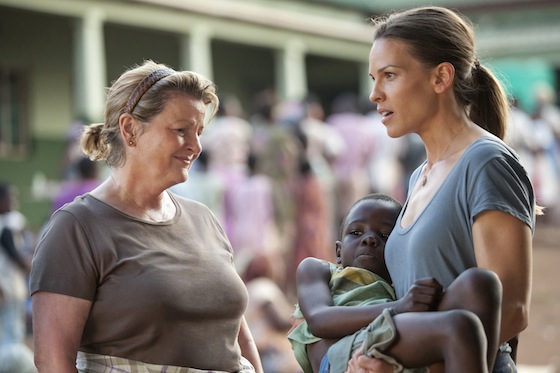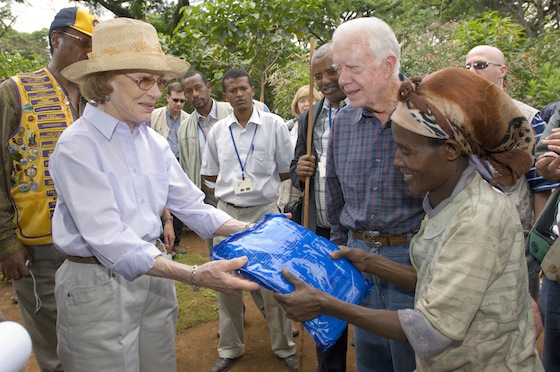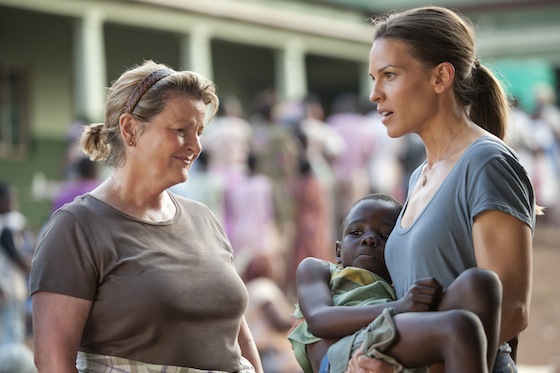
In 1946, the federal government established a new public health center in Atlanta to fight malaria. The disease was still a problem in the United States, and the South had the highest rate in the nation.
The new organization, the Communicable Disease Center, helped eliminate the malaria threat in the United States. But the center continued its disease-fighting work – and eventually became the current CDC.
Atlanta remains pivotal in the fight against malaria. The CDC is still working on the disease, tracking 1,500 cases each year in the United States, mostly in returning travelers and immigrants. The agency collaborates with foreign governments and other partners to fight malaria overseas, and conducts research.
A Carter Center program fighting malaria in Ethiopia and Nigeria has helped distribute nearly 14 million insecticide-treated bed nets in the two countries, among other activities there.
Given all that history, the Carter Center and Atlanta in general were natural sites for a screening this week of “Mary and Martha,’’ an HBO film focusing on malaria. It will have a national airing Saturday night on the cable channel.
The fictional movie portrays the story of two women, an American interior designer and a British housewife, who lose sons to malaria in Mozambique, a nation on the southeast African coast. Oscar winner Hilary Swank plays Mary. Brenda Blethyn plays Martha, whose story was inspired by Jo Yirrell and her son Harry Yirrell, who died after he volunteered in the West African nation of Ghana.
Spread by mosquitoes

Malaria is a preventable and treatable disease, but it remains deadly. In 2010, it killed more than 650,000 people, 90 percent of them in Africa.
The majority of victims are women and children under 5 years old.
It is transmitted from person to person by the female Anopheles mosquito. This insect bites only at night, which is why mosquito nets over beds have long been used to protect people in high-risk areas.
(The name “malaria” derives from the Latin words for “bad air,” because for centuries people thought the disease was caused by the swamp gases found in many areas where mosquitoes breed.)
The disease infects the liver and red blood cells, causing high fevers, body-shaking chills and flu-like symptoms.
The film “Mary and Martha” underscores the importance of funding for mosquito nets, which cost $10 each. That’s not a lot of money by U.S. standards, but it’s a substantial sum in many of the poor areas where malaria is widespread.
The Atlanta premiere was presented by HBO and advocacy group Malaria No More, in partnership with the Carter Center’s malaria control program and the Emory Institute for Developing Nations.
The institute, a partnership between Emory University and the Carter Center, is co-hosting a conference this month in Atlanta on disease elimination and eradication. Malaria is a new focus for the institute.
Multipronged approach
The Carter Center began its work against malaria several years ago when it was fighting river blindness and other diseases in Ethiopia.
The center’s work in that country – where malaria is the leading cause of death – has proved successful, said Paul Emerson, the co-director of the Carter Center’s malaria control program.
Nigeria, the most populous African nation, is a much more difficult challenge, he told GHN before the film’s screening. “Malaria is endemic there – it’s very difficult to get much traction.’’
Emerson emphasizes a multipronged approach to fighting the disease, using nets and mosquito spraying, and providing timely diagnosis and treatment. Anti-malarial medications can also be used to prevent the disease.
Without a vaccine, “we have imperfect tools,’’ Emerson said. But using those tools effectively, he added, “may actually be enough.’’
The U.S. government is putting $1.6 billion into malaria control, he noted.
Emerson grew interested in fighting malaria when he volunteered as a young man in the Gambia, a small nation in West Africa, and saw two young children die of the disease.
“This is what really cemented in me the desire to work in malaria,’’ he said.
“No one should have to go through that. There’s no reason anyone should die from this disease.’’

